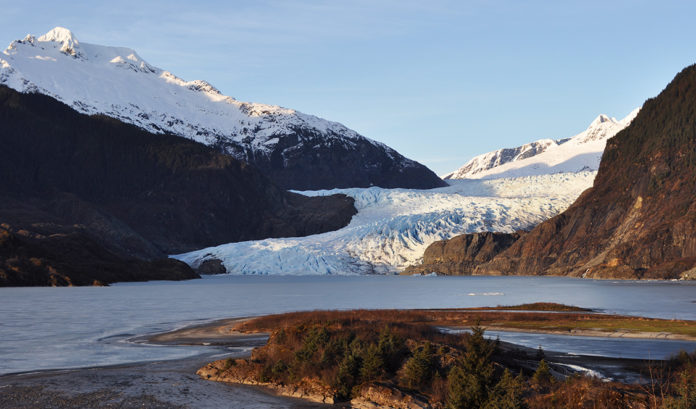WASHINGTON, D.C. – The U.S. Department of Agriculture (USDA) finalized protections for the Tongass National Forest in Alaska, the world’s largest intact temperate rainforest. USDA’s final rule repeals the 2020 Alaska Roadless Rule and restores longstanding roadless protections to 9.37 million acres of roadless areas that support the ecological, economic and cultural values of Southeast Alaska.
On his first day in office, President Biden committed to reviewing rules – such as the 2020 Alaska Roadless Rule – that may conflict with important national objectives including protecting the environment. This action is among a series of steps the Biden-Harris administration has taken to conserve and restore some of America’s most cherished lands and waters, many of which are sacred to tribal nations.
“As our nation’s largest national forest and the largest intact temperate rainforest in the world, the Tongass National Forest is key to conserving biodiversity and addressing the climate crisis,” said Agriculture Secretary Tom Vilsack. “Restoring roadless protections listens to the voices of tribal nations and the people of Southeast Alaska while recognizing the importance of fishing and tourism to the region’s economy.”
At 16.7 million acres, the Tongass National Forest represents the largest intact tract of coastal temperate rainforest on earth and is considered critical for carbon sequestration and carbon storage to help mitigate climate change. America’s forests are a key climate solution, absorbing carbon dioxide equivalent to more than 10 percent of U.S. annual greenhouse gas emissions.
The announcement reflects the administration’s commitment to strengthening nation-to-nation relationships and incorporating Indigenous knowledge, stewardship, and tribal priorities into land management decision-making. Roadless areas in the Tongass are of immense cultural significance for Alaska Native peoples. The forest is within the traditional homelands of the Tlingit, Haida, and Tsimshian peoples.
This final rule is based on the multiple ecological, social, cultural, and economic values supported by roadless areas on the Tongass, and follows months of engagement with tribes, rural communities, and partners. The Forest Service received about 112,000 comment documents from individuals and organizations during the public comment period between November 2021 and January 2022 – the majority of which were in favor of restoring roadless protections. The agency reviewed, analyzed and applied this input, alongside the input received during the 2020 rulemaking, to inform USDA’s final decision. USDA also consulted with Southeast Alaska tribal nations.
Repealing the 2020 Alaska Roadless Rule, which exempted the Tongass from roadless protections, will return the inventoried roadless areas of the forest to management under the 2001 Roadless Rule, which prohibits road construction, reconstruction, and timber harvest in inventoried roadless areas, with limited exceptions. USDA determined that the underlying goals and purposes of the 2001 Roadless Rule continue to be a critical part of conserving the many resources of the Tongass, especially when it comes to the values that roadless areas represent for local, rural communities, Alaska Native peoples, and the economy of Southeast Alaska.
“Today’s announcement reflects our continued focus on listening to tribal nations and people in Southeast Alaska,” said USDA Under Secretary for Natural Resources & Environment (NRE) Dr. Homer Wilkes. “Protecting the Tongass will support watershed protection, climate benefits, and ecosystem health and protect areas important for jobs and community well-being – and it is directly responsive to input from tribal nations.”















































